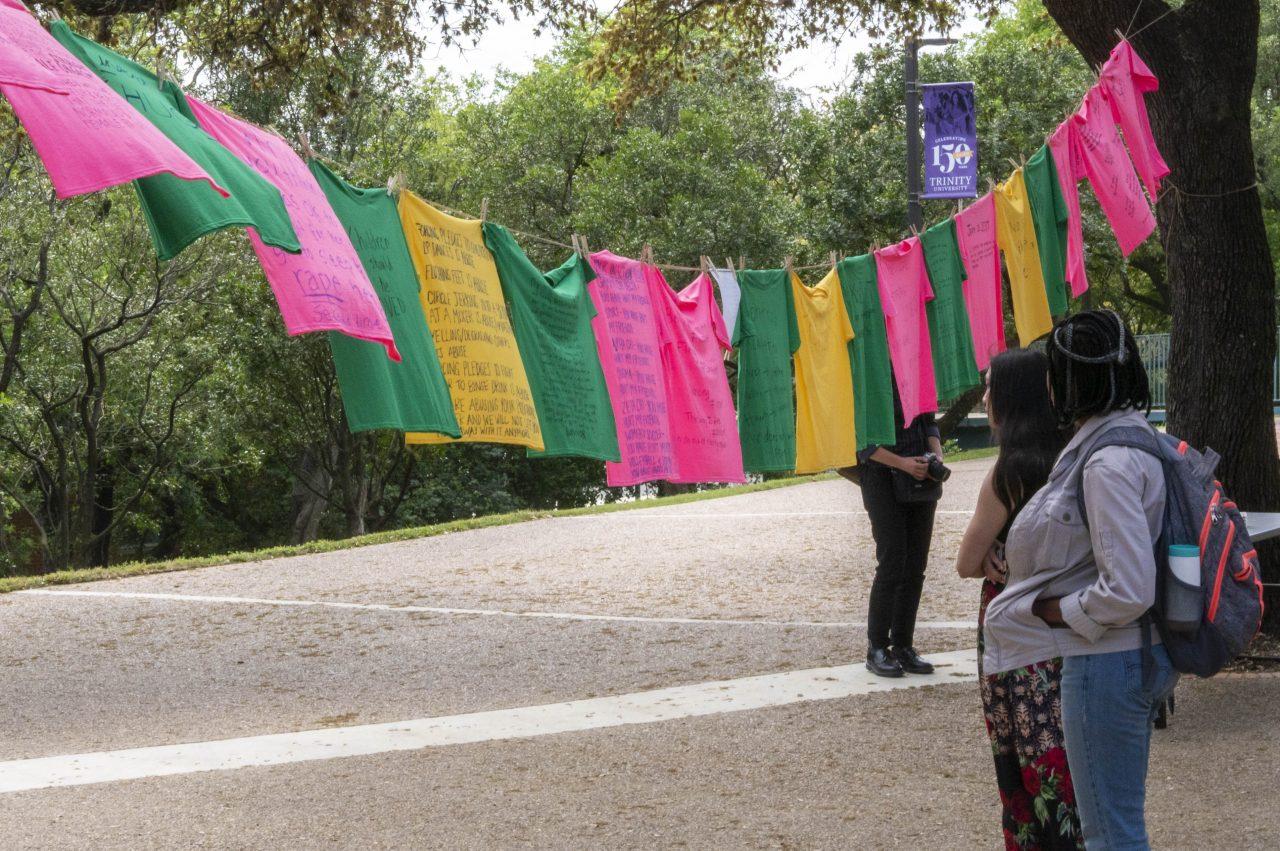Photo by Henry Pratt
The clothesline project shouldn’t be a shock. It shouldn’t be a surprise in any way. I am so glad that it was an eye-opening experience for those who were previously uninformed or unaware of the prevalence of sexual violence or abuse, and I could not support increasing awareness for these issues any more. However, it saddens me to a great degree to know that this is the first opportunity for many of the anonymous participants to make their voices and stories heard. I am so very sorry to all of you because it should not be this way. The fact that it is indicates that we as a society have failed to listen for far, far too long.
The clothesline project was intended as “a way to provide concrete visualization of the realities of assault, abuse and harassment on campus in a way that would spark conversation about how we can all support survivors and work towards eliminating sexual injustice,” said organizer Cece Turkewitz via email. “We didn’t come up with the idea for the clothesline project (it’s been going on nationally for decades), but we did adapt it so it could serve the Trinity community effectively.” The Coalition for Sexual Justice launched the project at Trinity because they believed that a more robust dialogue about sexual injustice was necessary — and they’re completely right. However, this project was birthed from an overwhelming frustration in a society that refuses to talk about these problems.
For me personally, this project seemed to have been reclaimed by the participants in a way that made it about even more than starting a conversation. The anonymous nature of the messages being displayed seemed to empower many people to share their stories, their anger and their hurt in a raw and honest way they might not have been able to do otherwise. It takes incredible courage to speak out about such deeply traumatizing events, to let others know they are not alone, and this courage was on full, bright display this week. Most inspiring of all was the number of shirts that spoke of their experiences in a way that conferred strength, not victimhood; these were not people who were letting their perpetrators break them but people who had decided to fight back and reclaim themselves. The anonymous voices spoke amongst themselves, telling each other that they were not alone, uplifting and encouraging those who still felt broken and asserting to the reader that what they had been through did not make them smaller.
The anonymous voices were shouting as well because the shirts should be blank. None of the stories scrawled on the T-shirts should have ever happened — and not because someone was drunk or because someone was vulnerable. We should have been listening all along, and by not doing so, the culture that perpetuates this violence has been allowed to persist. The sheer number of shirts hanging from the twine should be horrifying, but it should not be surprising. There is an idea that this is something that happens to other people, but without knowing, you talk to survivors every day. You have class with them and walk past them on campus. The prevalence of violence and abuse must not be underemphasized because it is everywhere and affects so many people every day.
The colored T-shirts snapping in the wind did not display the messages of victims, but the messages of powerful survivors. It took strength and bravery to share such personal experiences with the public in an effort to prevent them from happening to others. I want survivors to know that we are so proud of your strength because you have made a difference, and we are listening.












